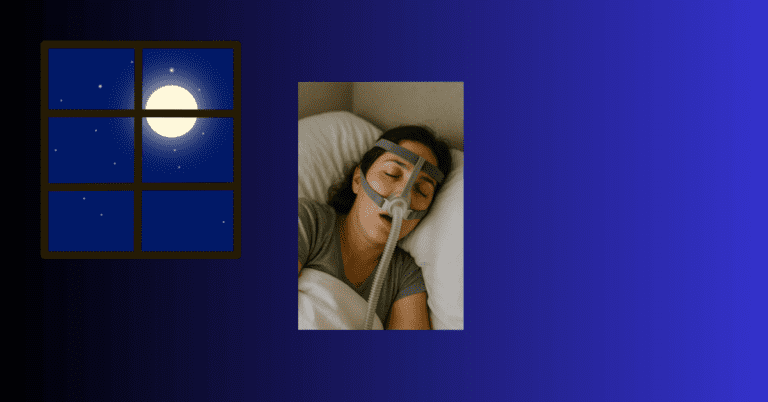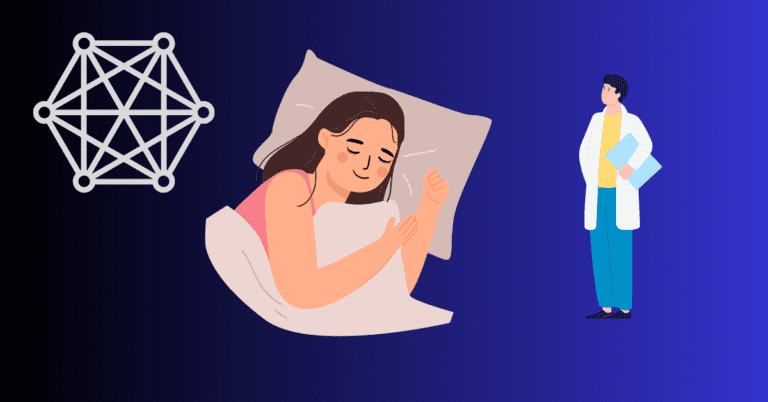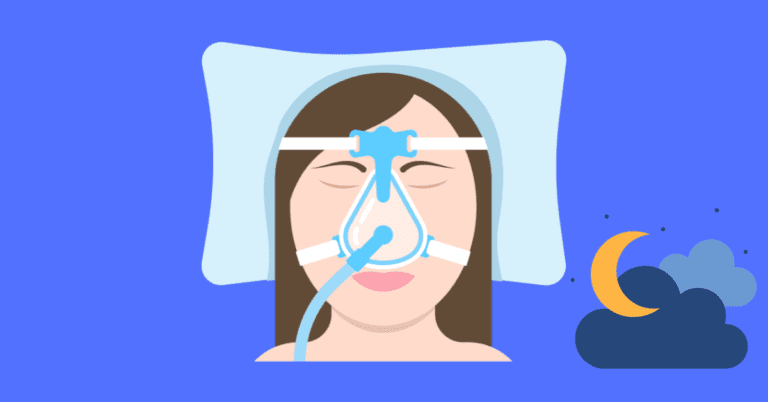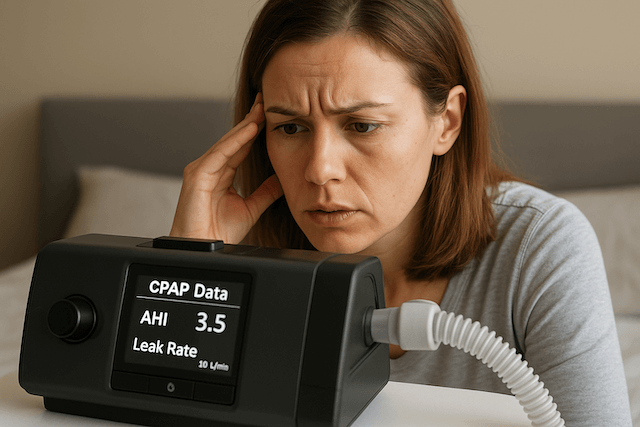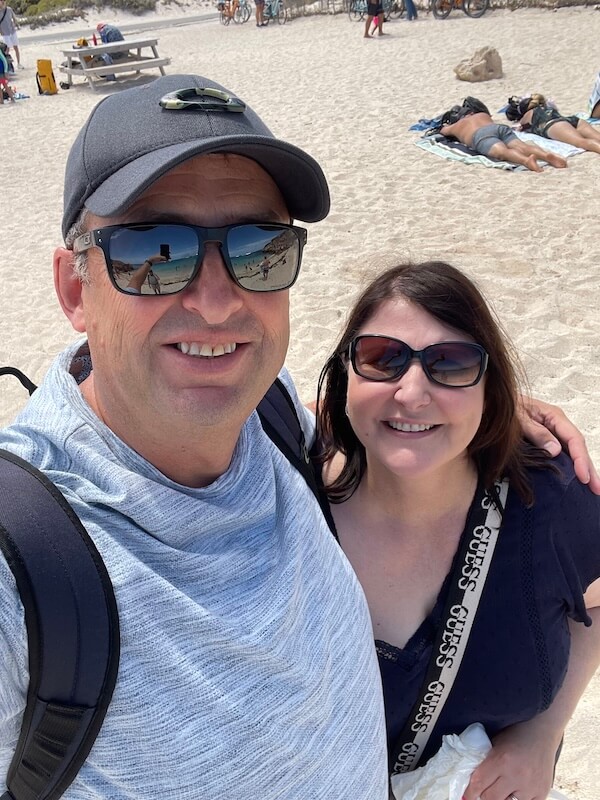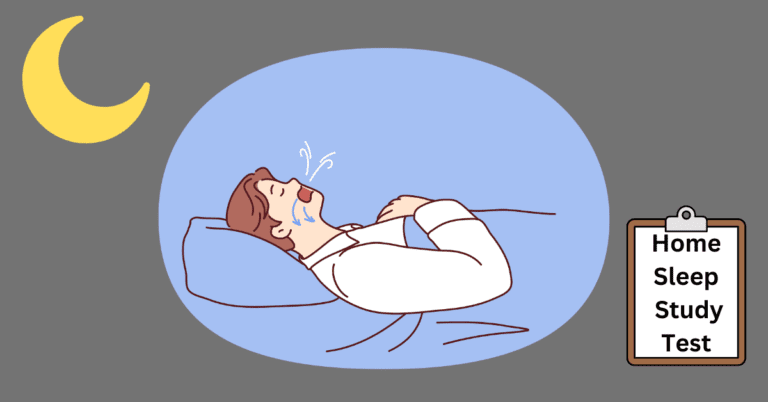How CPAP Therapy Helps with Brain Fog
Jeremy Smith is a long-term CPAP user and sleep apnea advocate. After being diagnosed with severe obstructive sleep apnea, he created ByJeremySmith.com to help others navigate CPAP therapy through personal stories, gear reviews, and practical advice.
Before I was diagnosed with severe sleep apnea, my mind was all over the place.
I never really knew what I was doing. I constantly forgot things, listened to people but did not take in what they were saying, and struggled to complete simple tasks at work.
Once I started CPAP therapy, though, it was like a light switched back on in my brain. That mental haze I lived with for years? Gone.

If you’re living with brain fog and untreated sleep apnea, you’re not imagining it—and you’re not alone. Let’s unpack why this happens and how CPAP therapy can help lift the fog for good.
What Is Brain Fog, Really?
Brain fog isn’t a formal diagnosis, but it’s very real. It’s that feeling of being mentally sluggish, unfocused, and just not yourself. Think of it as trying to think through mud.
Common symptoms include:
- Trouble concentrating
- Forgetfulness
- Mental fatigue
- Difficulty processing information
- Low motivation or productivity
If you’ve ever found yourself rereading the same sentence five times or completely blanking mid-conversation, brain fog might be the culprit.
The Sleep Apnea Connection
Here’s the thing most people don’t realize: brain fog is a common symptom of untreated sleep apnea.
When you have obstructive sleep apnea, like me, your airway repeatedly closes during sleep. Your brain has to jolt you awake to reopen it—sometimes hundreds of times a night.
You may not fully wake up, but your sleep gets fragmented, and your oxygen levels dip.
What happens to your brain?
- Your body is in survival mode all night, so restorative sleep disappears.
- Oxygen deprivation affects brain function, especially in the areas responsible for memory and focus.
- The brain never gets the deep REM and slow-wave sleep it needs to reset.
And over time, this takes a real toll.
How CPAP Therapy Helps Clear the Fog
CPAP (Continuous Positive Airway Pressure) therapy keeps your airway open with a steady stream of pressurized air while you sleep. No more choking, gasping, or micro-awakenings.
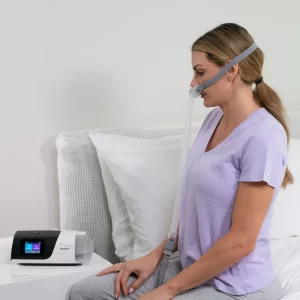
Here’s how that translates to better brain health:
1. Restores Oxygen to the Brain
CPAP therapy ensures your brain gets the oxygen it needs all night. This improves blood flow and supports brain cell activity.
2. Improves Sleep Quality
With CPAP, you’re finally getting uninterrupted, deep sleep. That means your brain can go through complete sleep cycles—including REM- vital for cognitive function and emotional regulation.
3. Boosts Cognitive Function
People who stick with CPAP therapy often report significant improvements in:
- Short-term memory
- Mental clarity
- Problem-solving
- Focus and attention
I noticed these changes within weeks of consistently using my CPAP machine. It felt like someone had finally turned the brightness back up on my brain.
What the Science Says
CPAP therapy isn’t just a good night’s sleep—it’s backed by solid science when it comes to restoring brain function and clearing up brain fog.
Cognitive Function Improves with CPAP
A 2018 systematic review in Sleep Medicine Reviews looked at multiple studies and found consistent improvements in attention, memory, and executive function in people with obstructive sleep apnea (OSA) who used CPAP therapy. These changes were most noticeable in users who stuck with treatment over time.
Measurable Changes After Just a Few Months
In the Journal of Clinical Sleep Medicine, researchers tracked patients over three months of CPAP therapy. Participants showed significant improvements in neurocognitive performance, even in those with moderate levels of sleep apnea.
CPAP May Help Reverse Brain Damage
A fascinating MRI-based study published in Sleep found that people with untreated sleep apnea had reduced gray matter volume in certain brain regions. But after using CPAP for just three months, many of those changes began to reverse, suggesting that consistent therapy can support brain recovery and healing.
So yes, CPAP doesn’t just help you sleep—it helps your brain heal and perform.
Real-Life Benefits You’ll Notice
Clearer Thinking
Tasks that used to feel overwhelming become manageable again. You can actually focus long enough to finish that email or hold an entire conversation without zoning out.
More Energy and Motivation
That morning grogginess starts to fade. You feel sharper and more energized, even on busy days.
Better Mood
When you sleep better, your emotional stability improves. Many CPAP users report feeling less irritable, anxious, or depressed.
Tips to Maximize CPAP’s Mental Benefits
Here’s how to make the most of your therapy and clear that brain fog for good:
Be Consistent
Use your CPAP every night, even during naps. The brain responds best to routine, and skipping nights can bring symptoms right back.
Choose the Right Mask
A leaky or uncomfortable mask can ruin your therapy. Try different styles until you find one that fits well. (I’ve written about choosing the right mask in this blog.)
Keep It Clean
Dirty equipment can lead to infections or discomfort. I use a simple cleaning routine every few days to keep things fresh and functioning.
Check Your Pressure Settings
Are you still waking up tired? Talk to your doctor about adjusting your CPAP pressure or switching to an auto-adjusting machine.
When I first got my CPAP machine, I had to get the pressure changed as it was way too strong. When I woke in the morning, it felt like my body was in shock.
What If You’re Still Feeling Foggy?
Don’t panic—progress can be slow. Some users need several weeks or even months before their brain fully rebounds. It depends on how long the apnea went untreated and how severe it was.
But if it’s been a while and nothing’s changing:
- Make sure your CPAP data shows good adherence and proper mask seal.
- Rule out other causes of fatigue—like medication side effects or thyroid issues.
- Look at your lifestyle: hydration, diet, screen time, and exercise all affect cognitive health.
Final Thoughts
Brain fog doesn’t have to be your standard. If sleep apnea is at the root of it—and for many, it is—CPAP therapy could be the most powerful mental health tool you have never considered.
Speaking from experience, getting my sleep and brain function back changed everything. I went from being forgetful and foggy to being focused and fully present. And that kind of transformation? It’s absolutely worth it.
Disclaimer: The content on this blog is for informational and educational purposes only and is not a substitute for professional medical advice. Always speak with your doctor or sleep specialist before starting, stopping, or changing any treatment or therapy related to sleep apnea or CPAP use.
